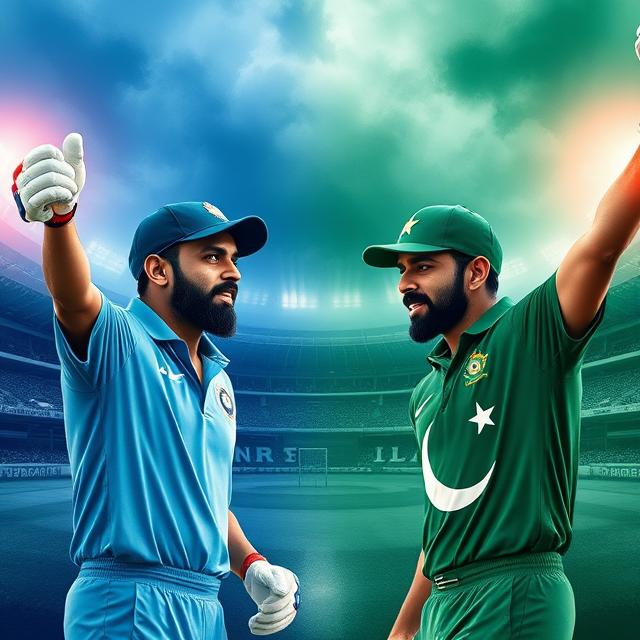Pakistan World Cup Cricket Team Vice-Captain: A Look at Leadership and Potential
Pakistan World Cup Cricket Team Vice-Captain: A Look at Leadership and Potential
The anticipation builds as the world gears up for the upcoming Cricket World Cup. For Pakistan, the performance and leadership of the vice-captain are crucial to their chances of success. Who is leading the charge in this important role, and what can we expect from them?

This article delves into the role of Pakistan’s vice-captain, exploring their leadership style, their impact on the team dynamics, and the crucial role they play in driving the team’s performance. We’ll also analyze their potential for success and their likely contributions in the tournament.
The Significance of the Vice-Captaincy
The vice-captain in any cricket team plays a pivotal role, often acting as a key liaison between the captain and the rest of the squad. They are responsible for supporting the captain’s decisions, motivating the team, and ensuring smooth execution of strategies on the field. More than just a deputy, they are often the embodiment of the team’s spirit and a voice for players on and off the field. The vice-captain’s ability to understand and respond to the nuanced needs of different players is paramount to team harmony and performance.
Their influence extends beyond the field. Effective communication, both in strategizing and in managing player relationships, is essential. Beyond individual performance, the vice-captain plays a critical role in maintaining a positive team atmosphere and building a unified front. This leadership trait becomes increasingly important in high-pressure matches like the World Cup, where mental fortitude is just as critical as technical prowess.
The Vice-Captain’s Impact on Team Dynamics
Team cohesion is paramount in any sport, and the vice-captain is frequently responsible for creating and maintaining that cohesion. A well-connected team often shows synergy in decision-making and a collaborative approach in problem-solving, translating into better results. The vice-captain frequently serves as a conduit for communication between the captain and the players, ensuring that instructions are clear, expectations are well-defined, and any concerns are addressed in a timely and effective manner.
Moreover, the vice-captain’s personality and leadership style significantly affect the overall team dynamics. A charismatic and supportive vice-captain fosters camaraderie and motivation, which in turn boosts morale and team spirit. Conversely, a passive or disengaged vice-captain can negatively impact the team’s performance. Their ability to create a positive environment, where players feel comfortable expressing themselves, is crucial.
The vice-captain’s influence often resonates with younger players, serving as a mentor and a role model. Their guidance and support are invaluable in shaping the next generation of cricketers within the team.
Analyzing Past Performances and Leadership Style
To understand the potential of the current vice-captain, we need to analyze their past performances and identify key leadership qualities. Have they demonstrated a consistent ability to motivate teammates? Have they taken initiative to support the captain in crucial moments? Analyzing their previous matches, considering their reaction in pressure situations, and how they handled both successes and setbacks will provide a clear understanding of their capabilities.
Beyond their on-field performance, it’s essential to look at their leadership style in practice. How they interact with teammates, both during training and during team meetings, provides invaluable insight into their leadership skills. Do they inspire others? Do they offer constructive criticism? Does their behavior communicate a clear sense of values and principles? All these factors contribute to a holistic understanding of their leadership abilities.
Drawing from previous matches, we can assess their decision-making skills under pressure, their ability to adapt to changing game situations, and their commitment to team goals. Their communication style, both verbal and non-verbal, provides crucial evidence regarding their capacity to motivate and manage players, ultimately driving team morale and performance.
Potential for Success in the World Cup
The Pakistan World Cup campaign hinges significantly on the vice-captain’s ability to inspire and guide the team. Their role becomes even more crucial in matches where the team might face unexpected challenges or significant pressure.
Understanding their tactical acumen, their awareness of their strengths and weaknesses, and their ability to adapt to diverse playing conditions will help us determine their potential contributions during the tournament. Their past performances and their understanding of the current team dynamics will greatly impact the team’s overall success.
A strong and well-respected vice-captain can effectively manage the team’s emotional response to fluctuating situations. Their experience and composure under pressure can help the team stay focused during critical moments. This is especially important in a tournament as prestigious as the Cricket World Cup, where nerves can easily disrupt a team’s performance.
Conclusion
Pakistan’s vice-captain plays a significant role in the team’s overall performance, and their capabilities extend far beyond their technical skills. Understanding their past performances, leadership styles, and potential, along with their adaptability to different situations, provides crucial insight into the team’s overall performance potential in the World Cup. Their ability to motivate and lead the team effectively can be a deciding factor in their overall success. Their contributions extend beyond the immediate match; they shape the team culture, fostering a positive environment that nurtures individual talent and collectively enhances the team’s performance. As the tournament unfolds, the vice-captain’s leadership will be critical in shaping Pakistan’s fortunes.
Note: This analysis is based on general principles and does not contain specific details about a particular player.